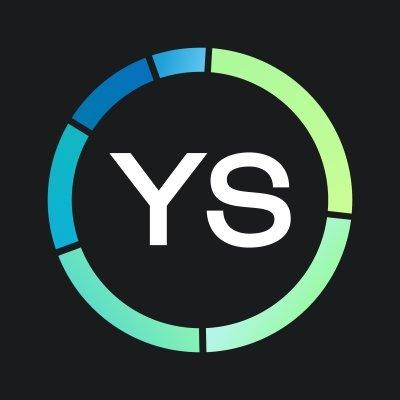Invest in private assets
Invest in private market alternatives
Investments
$10
Fundrise allows a minimum investment of $10 for taxable accounts and $1,000 for IRAs.
Moderate Risk
3/5
Investing with Fundrise involves risks such as limited liquidity, potential modifications to the share repurchase program, market volatility affecting asset values, the possibility of total investment loss, and regulatory changes impacting operations.
Moderate Risk
3/5
Yieldstreet investments, focused on high-yield, specialty lending, carry inherent risks higher than traditional investments, primarily due to the potential for borrower default.
Minimum Liquidity
1/5
Fundrise offers liquidity through its share repurchase program, allowing investors to redeem shares quarterly with no penalties or costs.
Minimum Liquidity
1/5
Yieldstreet's investments are generally less liquid, meaning they cannot be quickly sold for cash. These private market alternatives often require longer holding periods.
Receive new reviews from Fintorial
Low Return
4.81 %
Investors on Fundrise can expect returns through dividends and appreciation, with an average income return of 4.81% over 7 years.
Moderate Return
9.6 %
The expected net annualized return (IRR) for investors on Yieldstreet is 9.6%.
Long-term Investment
5+ years
Fundrise is designed for long-term investments, ideally for a period of 5 or more years, due to its focus on strategies aimed at long-term return potential.
Short-term Investment
6+ months
Yieldstreet's investments span time horizons from as brief as 6 months to as long as 5 years.
Who can invest
United States
To be eligible to invest with Fundrise, individuals must meet several criteria: they must be at least 18 years old, have permanent residency in the United States, possess a valid U.S. tax ID, and file taxes in the U.S. The platform is open to both accredited and non-accredited investors.
Who can invest
United States
Yieldstreet is open to U.S. persons with a valid TIN, U.S. bank account, and U.S. mailing address. Non-accredited investors can access the Alternative Income Fund, while single asset investments require accredited investor status verification.
Moderate Volatility
3/5
Assets on the Fundrise platform, such as private real estate and venture capital, typically show lower volatility compared to public stocks and bonds, due to less frequent valuation updates and reduced exposure to daily market swings.
Moderate Volatility
3/5
Assets on Yieldstreet, being alternative investments, often show different volatility compared to traditional markets, potentially offering less correlation with broad market swings.
Regulation and audits
SEC Regulated
Fundrise is regulated by the SEC and must comply with strict reporting, disclosure, and operational standards. It undergoes regular independent audits to verify financial accuracy, legal compliance, and the effectiveness of its internal controls, ensuring transparency and integrity in its operations for investor protection.
Regulation and audits
SEC Regulated
Yieldstreet is regulated and undergoes regular audits for compliance. Its partnership with Synapse Brokerage LLC, an SEC-registered broker-dealer and FINRA and SIPC member, ensures adherence to strict financial regulations.
Insurance
No
Investments on Fundrise, including real estate and alternative assets, are not insured by the FDIC or any other government agency, exposing investors to the risk of loss without insurance protection.
Insurance
Yes
Funds in the Yieldstreet Wallet are insured up to $250,000 by the FDIC, with deposits between $250,001 and $1 million spread across multiple FDIC-insured banks for extended coverage.
Payouts
Dividends
Dividends are paid quarterly, based on income from portfolio projects, and can be either reinvested or cashed out. Appreciation comes from increases in the value of the investment, reflected in the net asset value (NAV) of shares. Returns start accruing after investment settlement, typically within 5 business days, and can be tracked on the Investor Dashboard.
Payouts
Dividends
Yieldstreet offers varied dividend or interest payment structures: fixed income investments provide monthly payments at a target yield, diversified portfolios offer quarterly target yields, and art investments yield returns upon sale, all subject to specific terms and potential annualized net returns.
Withdrawals
To withdraw funds from Fundrise, investors must submit a liquidation request. Liquidations are reviewed quarterly for most funds, with a waiting period for the eFund. No penalty is charged for liquidating shares from the Flagship, Income, or Innovation Funds, but eREIT and eFund shares held for less than five years may incur a penalty. Liquidations are processed on a "First in, first out" basis.
Withdrawals
Investors on Yieldstreet receive distributions directly into their Yieldstreet Wallet and can withdraw these funds to their bank account as desired.
Extra Fees
Yes
Fundrise charges a 0.15% annual advisory fee, a 0.85% management fee for real estate funds, and a 1.85% management fee for the Innovation Fund. Early liquidation of eREIT or eFund shares before 5 years incurs a 1% penalty.
Extra Fees
Yes
Yieldstreet's fees include a range from 0% to 2.5% annual management fees, structured notes incur a 1.25% annual management fee plus a $150 annual fund expense, the Yieldstreet Alternative Income Fund charges a 1.0% annual management fee and up to a 0.5% annual administrative expense.
Taxes
Tax Form
Fundrise investors can expect Form 1099-DIV for eREITs or interval funds with distributions over $10, Schedule K-1 for eFund shares, and Form 1099-B for liquidated shares. Tax documents are issued at the end of January for 1099-DIVs and mid-March for K-1s, available on the investor dashboard. Multiple funds in a portfolio may result in receiving multiple tax forms.
Taxes
Tax Form
Yieldstreet issues either a K-1 or 1099 form for tax purposes, based on the legal structure of the investment, with details provided on the offering page and in downloadable documents when new offerings are launched.

